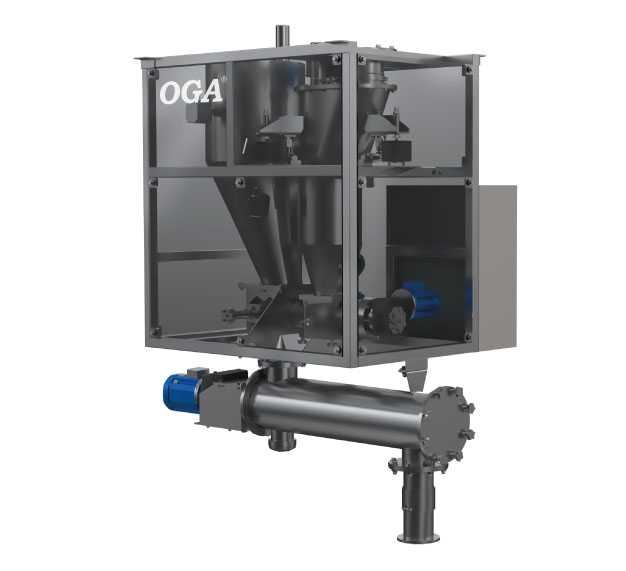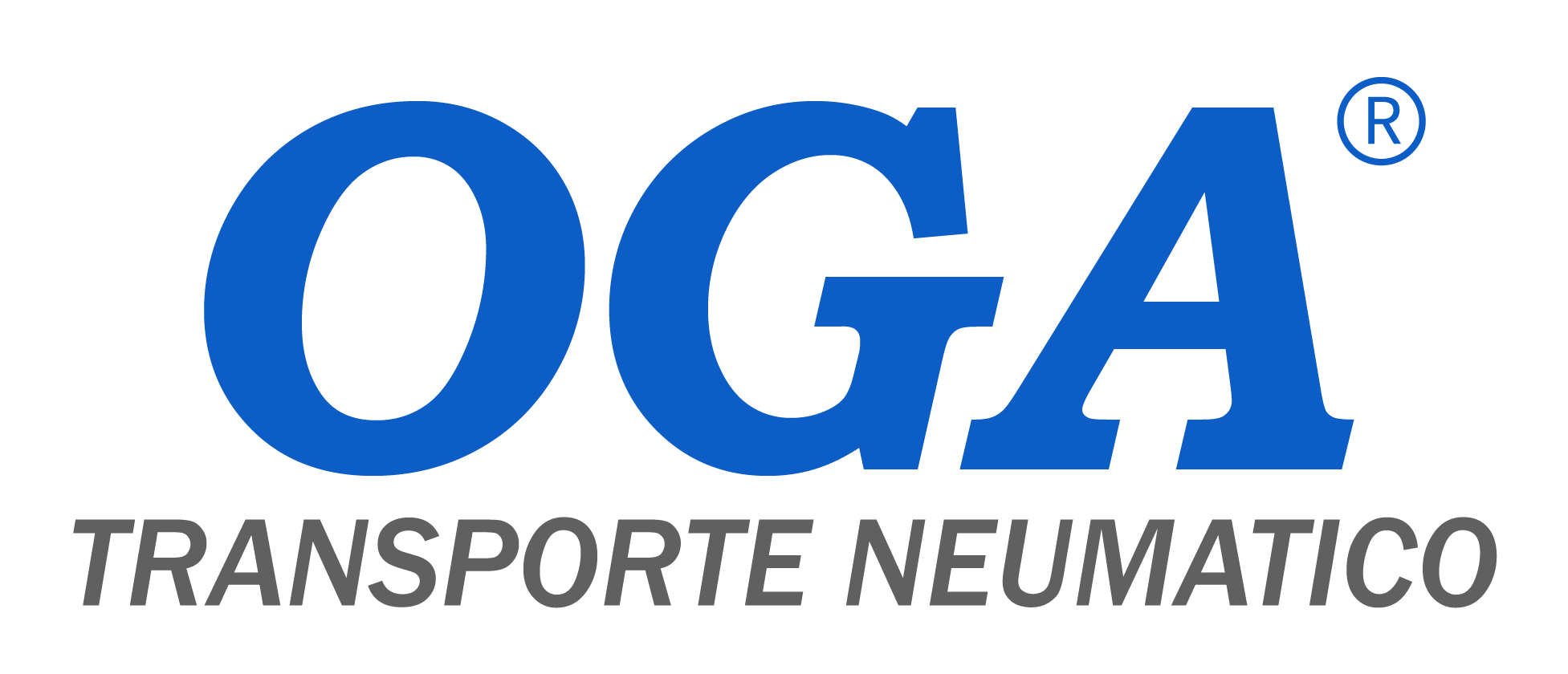









What is a Gravimetric System in Pneumatic Conveying Systems?
A gravimetric system in pneumatic conveying systems is an advanced technology designed to measure and control the flow of bulk materials in pneumatic transport systems. This system uses sensors and weighing devices to accurately monitor the amount of material being transported, ensuring that dosing specifications are met. Gravimetric systems are crucial for applications requiring precise control of material quantities, enhancing process efficiency and ensuring the quality of the final product.

- Gravimetric in Stainless Steel / Carbon Steel.
- Upper system with 2 compartments for feeding 2 raw materials (PVC compound and calcium carbonate).
- Dynamic double-length mixing system with motor reducer at 180°.
- Control panel with Siemens PLC, 7″ color touchscreen HMI Siemens, and electrical protections at 220-440VAC/60Hz/3Ph.
- Possibility of communication with client’s supervision software.
- Traceability of extruder machine consumption.
- Frequency inverters for motors.
- High-impact beater for static mixer.
- Field terminal block housing.
- Bottom connection to the hopper on the extruder machine.
- Easy-to-install monoblock equipment.
- Top connection to the hopper.
- Capacity between 30-50PHR of calcium carbonate (According to requirements).
Types of Gravimetric Systems in Pneumatic Conveying Systems
In-Line Weighing Systems: Directly integrated into the transport line, allowing real-time measurement of material flow during pneumatic transport.
Batch Dosing Systems: Designed to measure and control specific quantities of material in each batch, providing precision in loading and unloading.
Continuous Flow Control Systems: Continuously monitor and adjust material flow to maintain a steady rate and avoid process interruptions.
Load Cell Weighing Systems: Use load cells to measure material weight with high precision, ensuring accurate dosing and transport control.
Applications of Gravimetric Systems in Various Industries
Gravimetric systems are used in various industries to ensure precise and efficient control of bulk material flow. Key industries include:
- Food Industry: To ensure precise dosing of ingredients in production and packaging processes.
- Chemical Industry: To control and accurately measure the amount of powders or granulated chemicals during manufacturing.
- Pharmaceutical Industry: To ensure accurate dosing of active ingredients and excipients in drug production.
- Plastic Industry: To control the amount of resins and additives used in plastic product manufacturing.
- Construction Industry: To measure and control the quantity of materials like cement and additives in mixing processes.
- Mining Industry: To accurately measure the flow of powdered minerals and other materials during processing.
- Recycling Industry: To ensure precise control of recyclable material flow in recycling processes.




